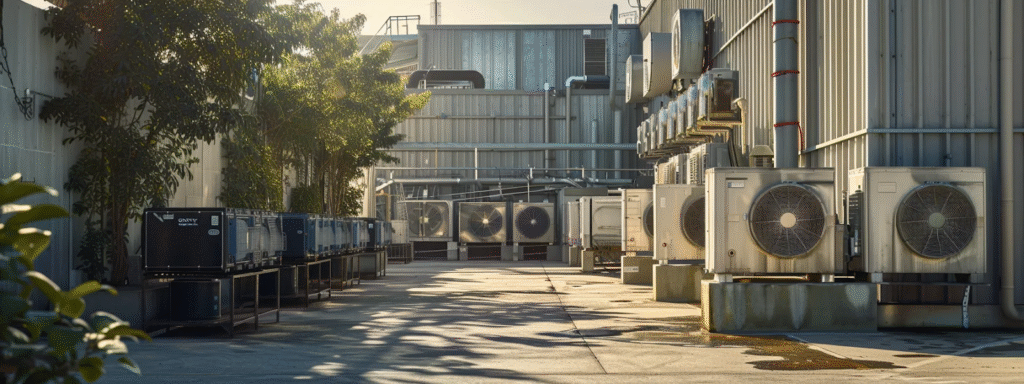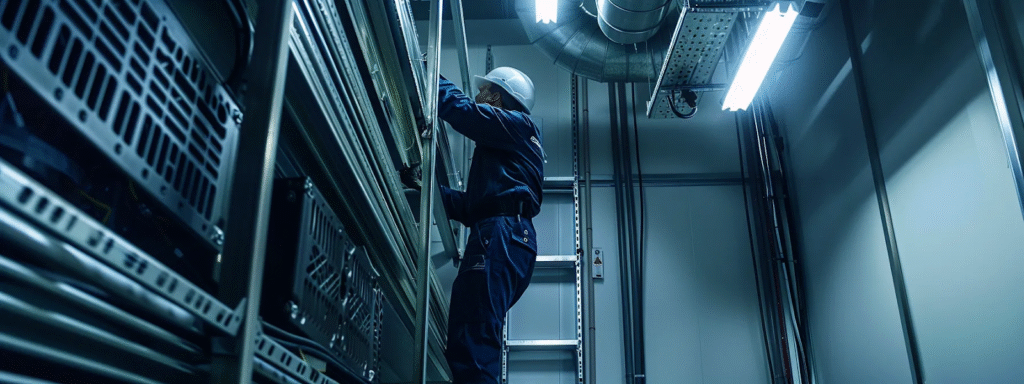Efficient temperature control is crucial in industrial settings, impacting everything from machinery performance to product quality. Air cooled chillers are a cornerstone of this process, offering a reliable and often more sustainable alternative to their water-cooled counterparts. Their role in maintaining the temperature of equipment, materials, and large facilities is both formidable and nuanced. Below, we dive into their distinct advantages, dissecting how they can contribute to operational efficiency, environmental sustainability, and cost reductions. Keep reading to find out why air cooled chillers may be the optimal solution for your industrial cooling needs.
Understanding Air Cooled Chillers and Their Role in Industrial Cooling

Air cooled chillers are essential for industrial operations, efficiently absorbing heat from process water and releasing it into the surrounding air. Unlike water-cooled systems, they don’t need a cooling tower, making them easier to install and maintain. These chillers are ideal in areas with limited water resources, using fans to prevent equipment from overheating and ensuring smooth operation.
With capacities measured in tons, an air cooled chiller can meet diverse industrial needs based on heat output and desired temperature. Advanced designs allow precision cooling, making them crucial for maintaining quality and consistency in industries like manufacturing and food processing.
Enhanced Energy Efficiency: The Economic Perk of Air Cooled Chillers
Air cooled chillers are efficient in operating in cooler climates, reducing energy consumption and compressor load. Advancements in fan and compressor technology, such as variable speed drives, further enhance energy efficiency. These chillers minimize component wear, reducing electricity consumption and repair needs. Installation is typically less costly than water-cooled systems, as there’s no need for separate cooling towers and condenser water pumps.
This economic advantage is further enhanced over time by mitigating costs associated with water treatment and managing water-based cooling systems. Air cooled chillers can contribute to lower carbon footprints, benefiting businesses demonstrating their environmental responsibility and commitment to sustainability.
Operational Advantages of Air Cooled Chillers in Various Industrial Settings
Air cooled chillers are versatile and suitable for various industrial applications due to their robust design, noise reduction, and ability to maintain consistent performance even in fluctuating temperatures. They eliminate the need for water, ensuring water quality and addressing scarcity issues.
Newer models are also suitable for locations near workspaces or urban areas, allowing for flexible placement without noise disturbances. Air cooled chillers can be configured in redundant setups, providing continuous cooling without risking a complete shutdown due to a single unit’s failure. This strategy enhances business continuity and protects against potential losses in sectors like data centers and pharmaceuticals.
Maintenance and Lifespan Benefits of Air Cooled Systems

Air-cooled chillers are more resilient and cost-effective due to their lack of water circuits, requiring less maintenance than water-cooled systems. They require simple checks and cleaning of fans and coils, which can be done by in-house personnel. Air-cooled chillers are less prone to corrosion and wear and tear, resulting in a longer operational lifespan.
This can lead to cost savings and a better return on investment. Modern air-cooled chillers with built-in monitoring systems can help operators identify issues before they escalate, ensuring peak operational efficiency, reducing energy waste, and extending the unit’s lifespan.
Environmental Impact and Sustainability of Air Cooled Chillers in Industry
Air-cooled chillers are a significant contributor to environmental sustainability in industrial processes by using air as a cooling medium, eliminating the need for water withdrawal and chemical treatments associated with water-cooled systems. This conserves natural resources and reduces chemical runoff. Air-cooled chillers are also aligning with international guidelines to protect the ozone layer and reduce greenhouse gas emissions.
By using energy more efficiently, air-cooled chillers reduce emissions from power plants, especially in regions relying on fossil fuels. The combination of design efficiency, refrigerant choice, and water conservation makes air-cooled chillers a sustainable choice for environmentally conscious enterprises. As industries evolve, the contribution of air-cooled chillers towards greener practices is expected to grow even more substantially in the future.
Overall, the influence of air-cooled chillers on industrial operations runs deep, addressing energy requirements, operational stability, and environmental consciousness. Their ability to provide a dependable cooling mechanism while optimizing for cost and sustainability makes them a compelling choice for industries keen on improving efficiency and competitiveness. As the realm of industrial cooling continues to innovate, air cooled chillers are poised to be at the forefront of this transformative journey.










